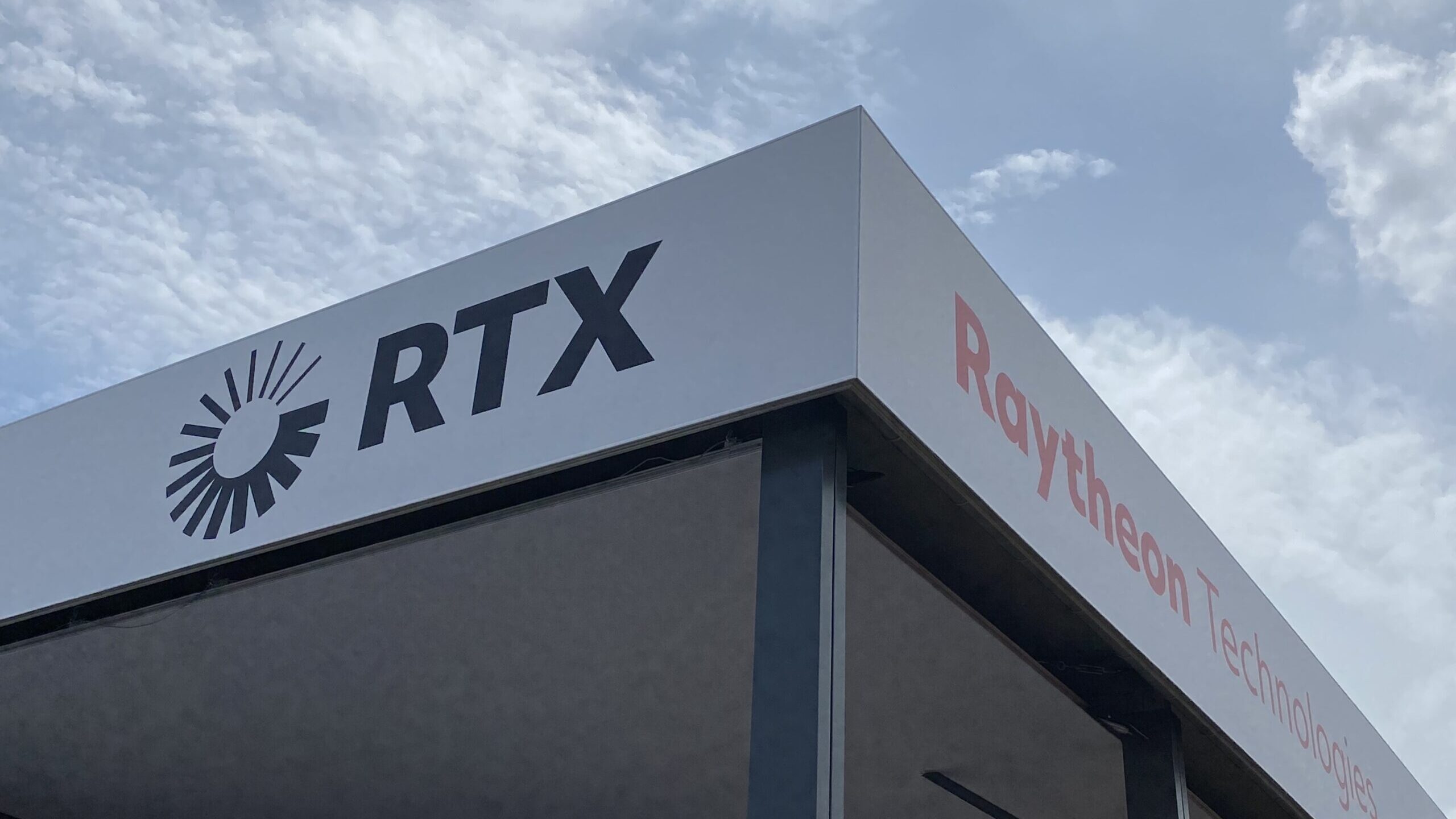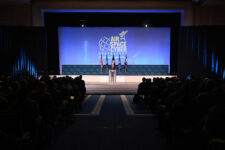
The RTX chalet at the 2023 Paris Air Show shows off both the rebranded company name and its older Raytheon Technologies title. (Aaron Mehta/Breaking Defense)
WASHINGTON — The US State Department today announced a $200 million settlement with defense contractor RTX over charges their workers jeopardized military secrets while traveling abroad.
The settlement comes as a result of RTX’s voluntary disclosures, involving 750 violations of the Arms Export Control Act and International Traffic in Arms Regulations (ITAR) between August 2017 and September 2023.
“RTX disclosed all of the alleged violations voluntarily,” the government wrote in a brief announcement ahead of the holiday weekend. “RTX also cooperated with the Department’s review of this matter and has implemented numerous improvements to its compliance program since the conduct at issue.”
In a brief statement to Breaking Defense, an RTX spokesperson said, “Today’s action is in line with the company’s expectations, which we disclosed during the company’s second quarter earnings report on July 25, 2024.”
A large number of the violations seem to involve employees traveling abroad — including to sanctioned nations Iran and Russia — and bringing their work laptops with them. The employees then sought to log into their laptops, which State says had host of “defense articles” related to sensitive US military programs including the Aegis Ballistic Missile Defense System, B-2 Spirit bomber, F/A-18 E/F Super Hornet and F-35 Lightning II.
One incident, for example, involved a May and June 2021 trip to St. Petersburg, Russia where an employee carried along his RTX-issued laptop containing ITAR-controlled technical data related to at least five military aircraft. While there, he reported to the cybersecurity team several “alerts” that were “incorrectly dismissed” as false positives because of a transition to a new cybersecurity tool.
In another, an employee traveled to Iran and attempted to log into his computer while there. While RTX security caught the action and froze the laptop, it was determined that the laptop’s hard drive contained technical data on both the B-2 Spirit bomber and F-22 Raptor fighter — not the kind of data the US would generally want to leave its shores, let alone being present in Iran.
A third travel incident occurred with an employee repeatedly visiting Lebanon. An internal RTX investigation later determined that the employee’s laptop had technical information on Standard Missile-3, Standard Missile-6, and ESSM missiles. “The US government reviewed copies of the files referenced in this disclosure and determined that the unauthorized export of technical data harmed US national security and adversely impacted a DoD program of record,” State notes.
Under the 36-month agreement, the company will pay $200 million a civil penalty but the government agreed to cut that figure in half if RTX uses $100 million for remedial compliance measures.
The proposed charging letter can be read here and the consent agreement can be read here.






















